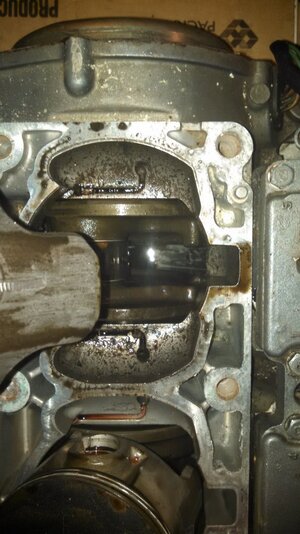Thoughts on a melted ground cable from battery to engine ? FX-1, went to crank it, turned a few times then i watched my ground go up in smoke after taking the hood off. Promptly ran for a screw driver and removed it from battery. Positive lead to the starter looks to be smoked pretty good too. To make matters worse, my engine seems to have a bad wrist pin.. thinking starter was working a bit too hard trying to turn the engine over ?
Is it possible for a bad/worn starter to cause a short like this regardless of engine issue ?
All connections were tight on both ends and corrosion free.
Is it possible for a bad/worn starter to cause a short like this regardless of engine issue ?
All connections were tight on both ends and corrosion free.

